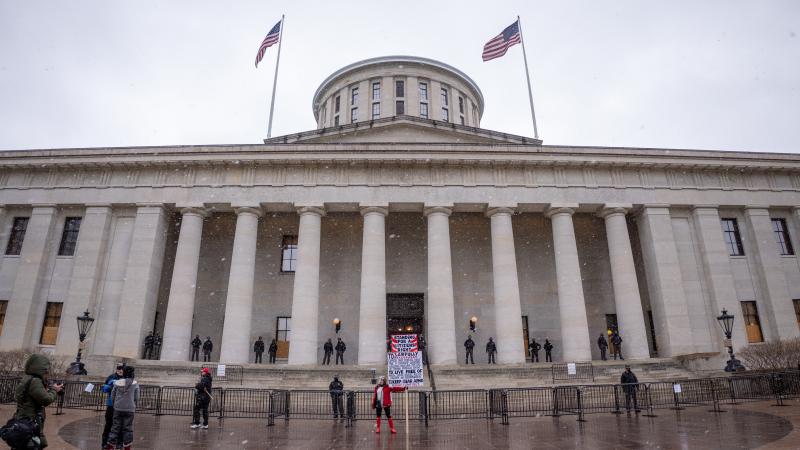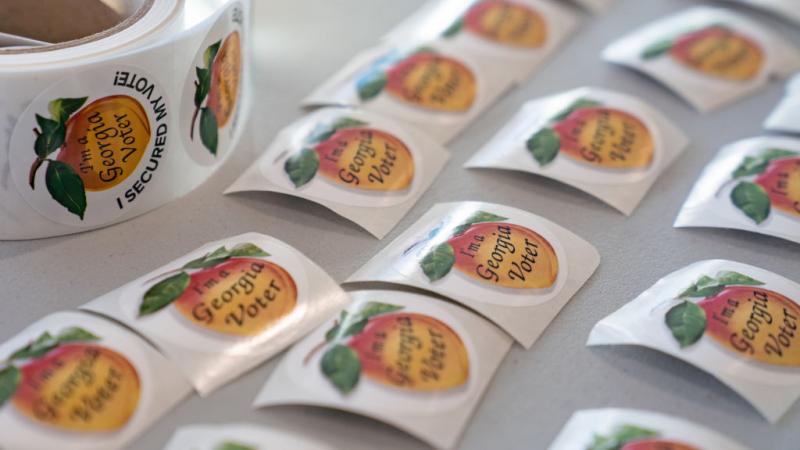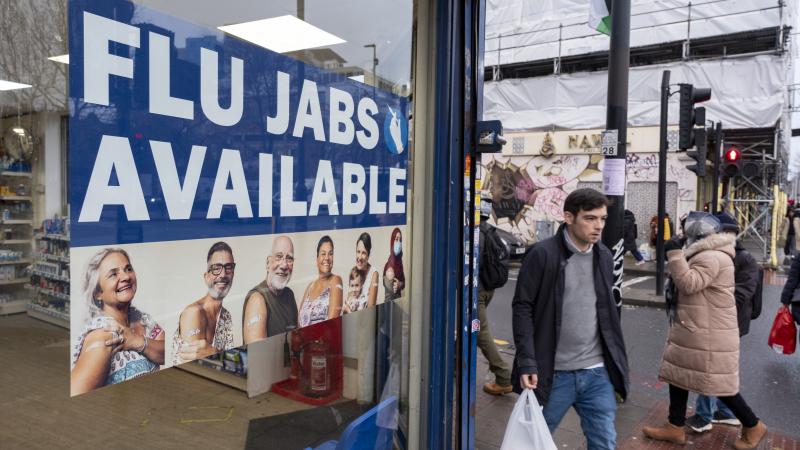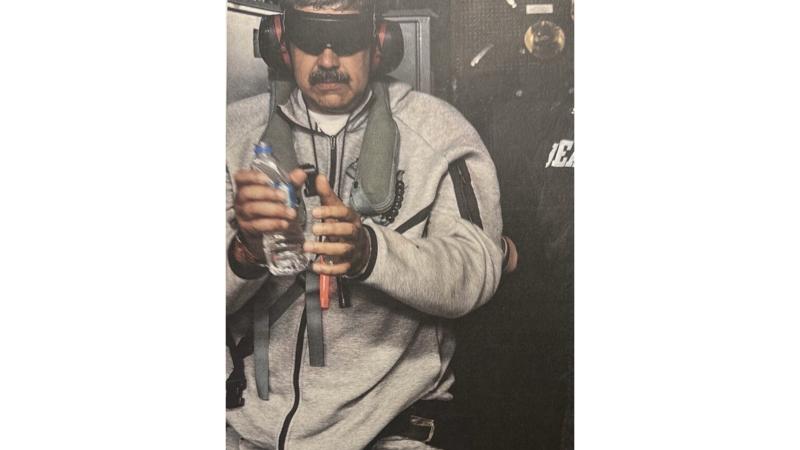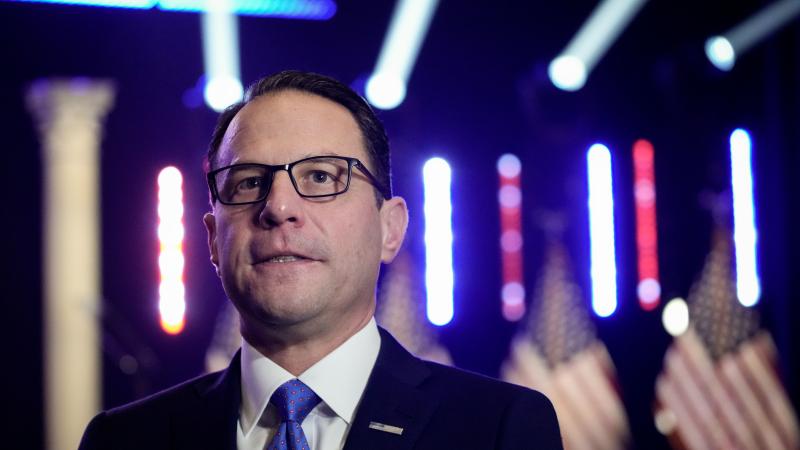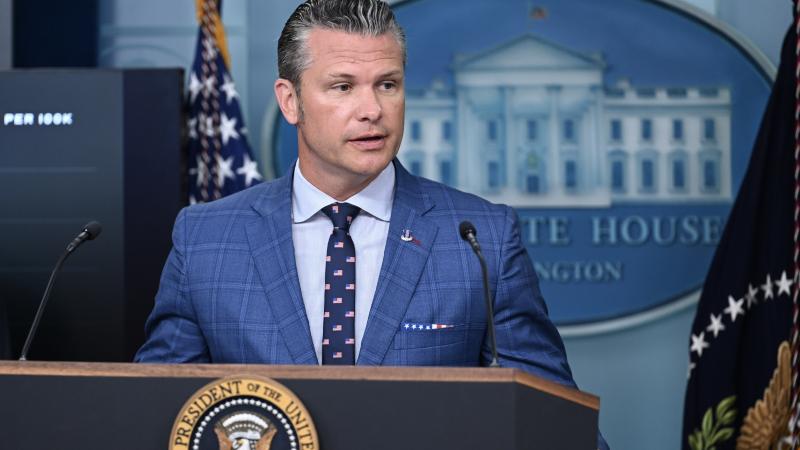NIH finds millions to protect tattooed from sun, prod elderly to walk, study road safety in India
"While Americans were relying on the National Institutes of Health to combat COVID, they were spending your tax dollars in questionable ways," writes Sen. James Lankford in "Federal Fumbles."
The Golden Horseshoe is a weekly designation from Just The News intended to highlight egregious examples of wasteful taxpayer spending by the government. The award is named for the horseshoe-shaped toilet seats for military airplanes that cost the Pentagon a whopping $640 each back in the 1980s.
This week's Golden Horseshoe is awarded to the National Institutes of Health (NIH) for lavishing millions in taxpayer dollars on projects of dubious necessity, including a sun safety program for the tattooed, a social media game to promote the health benefits of walking among older women, and a "long-term research program" on road safety — in India.
"While Americans were relying on the National Institutes of Health to combat COVID, they were spending your tax dollars in questionable ways," writes Sen. James Lankford (R-Okla.), citing the expenditures in the latest volume of "Federal Fumbles," his annual compendium of Beltway spending follies.
NIH awarded six grants totaling over $2 million for "Sun Safe Ink!" a skin cancer prevention program for the tattoo community to be tested in licensed tattoo studios.
Noting that "approximately 25% of American adults" have tattoos and "the popularity of tattoos continues to grow in the general population and particularly among military members of the military," the project description observes: "Individuals with tattoos need to take extra precaution when exposed to the sun not only to protect themselves from harmful UVR rays but also to reduce damage to their tattoos."
The venue for the study was selected "because tattoo studios, at times, promote sun protection for new tattoos to keep them from fading," according to the project abstract, "and offer a unique opportunity to reach younger adults who have high sunburn rates and are often less likely to practice sun protection."
NIH also awarded a $164,000 grant in FY20 to researchers at the University of Chicago to improve the safety of rural roads and highways — not in the vast agricultural expanses of Illinois but, rather, in India. The grant history shows an additional $173K was awarded in FY2019 for the same program.
"Traffic injuries already rank among the top-10 causes of death in India, and among the top-5 causes among children 5-14 years old," the project description reads. "Therefore, we propose to establish and build a long-term research program in India that uses local empirical data to assess how road designs affect traffic injuries. We will analyze crash data to identify priorities for road treatments in India, adapt existing methods for evaluating interventions in the Indian context, and initiate a training program to build capacity of researchers and practitioners to design safer roads."
And, finally, citing the "insufficient physical activity (PA)" endemic among older women, NIH is funding the development of a new social media game to sell members of the demographic on the health benefits of a time-tested form of exercise: walking
"We propose to use a socially networked active game to emphasize aspects of walking PA that are enjoyable and related to older womens' identity and values, thus increasing their autonomous regulation for PA and in turn PA adherence," reads the project description.
NIH awarded $366K to the University of Texas Medical Branch Galveston in FY2021 to develop the game. It was the third grant awarded for the program, and the total funding has now reached $1.1 million.
The NIH did not respond to a request for comment for this article.


